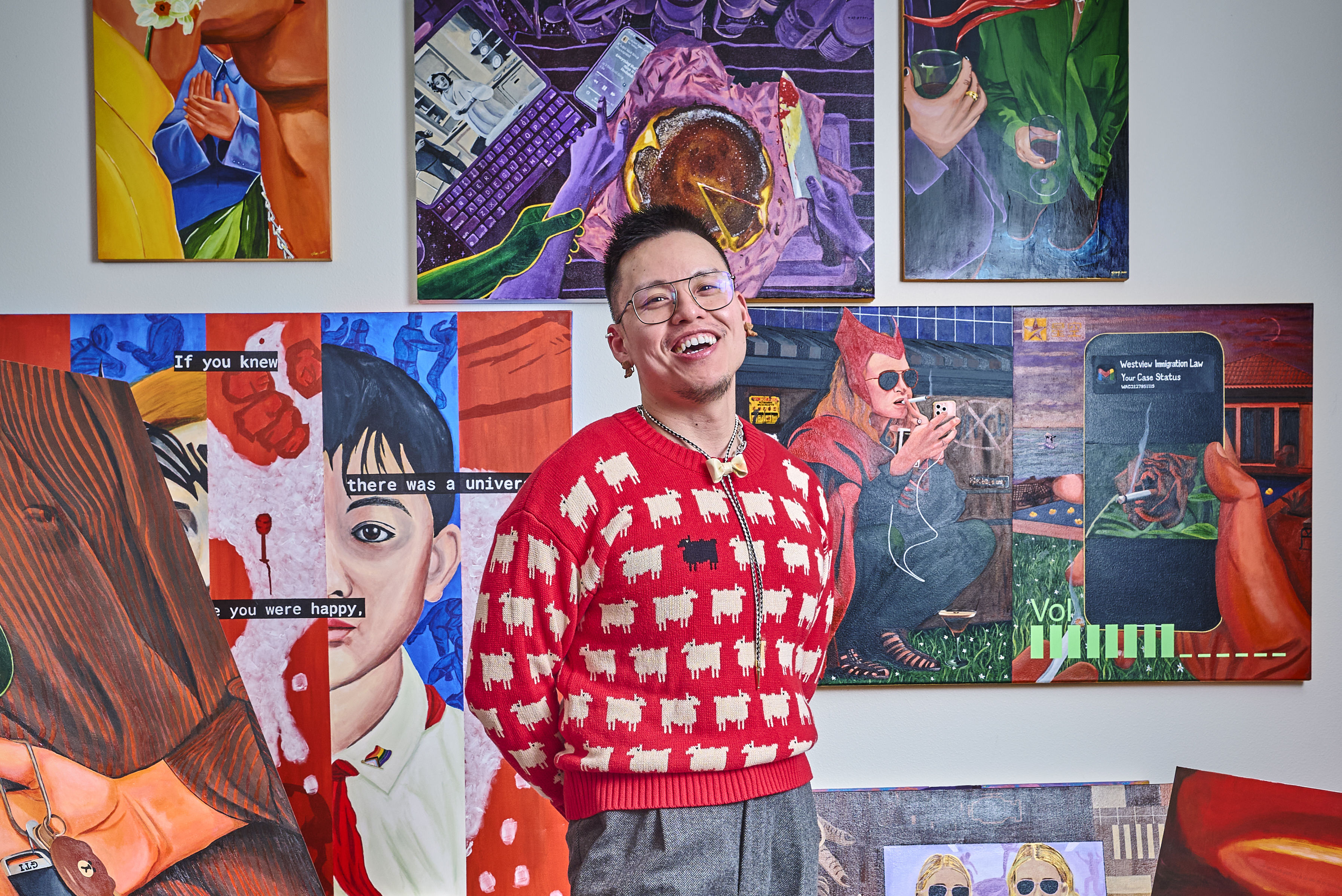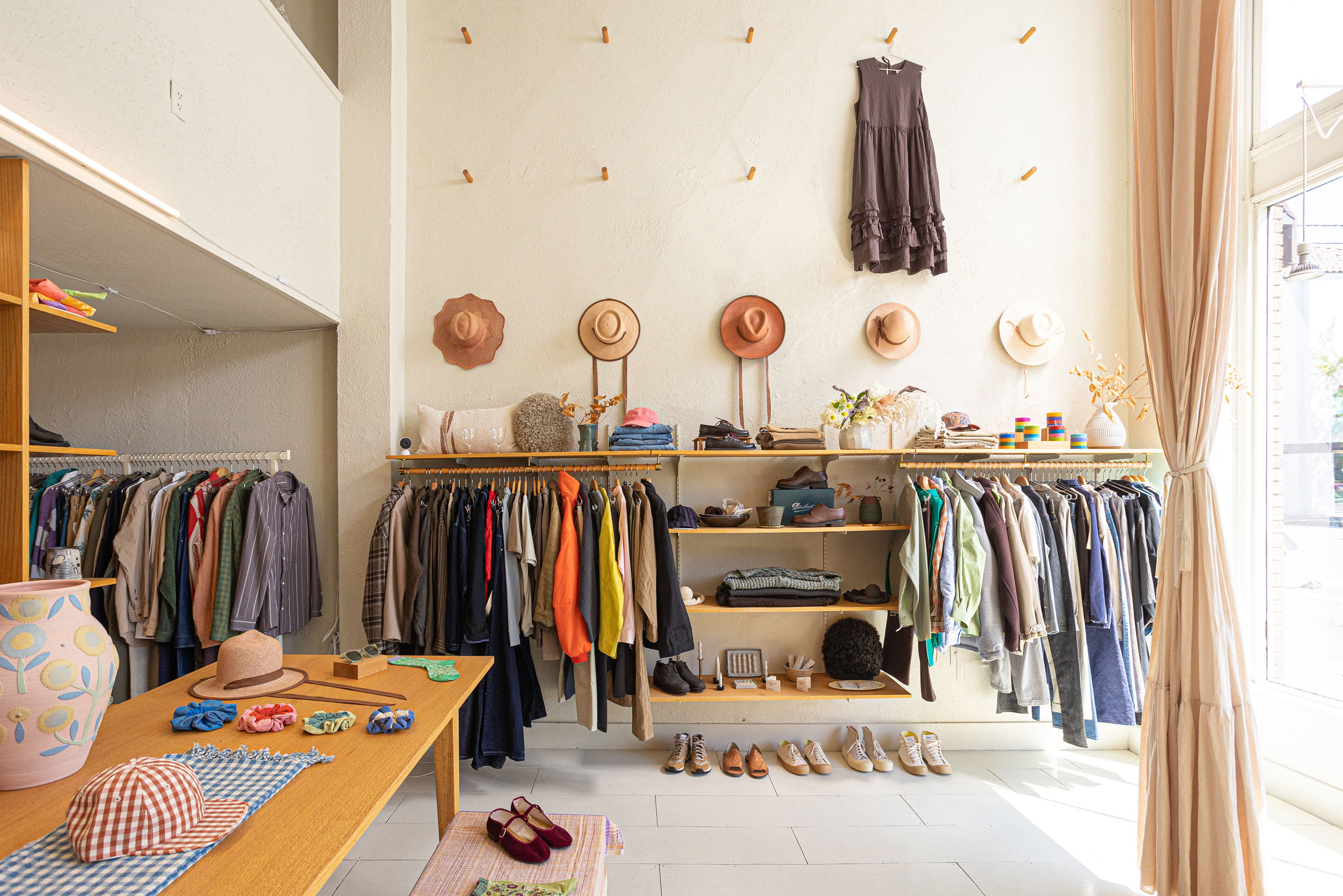A Former Art Museum Curator’s Gallery of Designer Clothes

Image: Aaron Lee
When Diana Kim left her curatorial position at Minneapolis’s Walker Art Center to move home and open an avant-garde clothing boutique, her goal was to put artistic fashion designers like Rick Owens and Comme des Garçons in context for Portland. The model—an art historian applying her aesthetic education to clothes—was unique, especially in 2007, but it wasn’t about hawking expensive and trendy garments. In her humble, gallery-like storefront on East Burnside, garments would function as art objects. “I feel like it’s not maybe as niche as one might think,” Kim says. “Somehow.”
Stand Up Comedy, Kim’s boutique (check out more favorite boutiques), eventually moved across the river into a compact space in SW Broadway’s Morgan Building. Inside, a single rack holds a few dozen garments. There are no didactics or artist statements on the wall, but Kim and her small staff will talk to you about designers like a gallerist might their artists. Clothes here are a vehicle for ideas, and Kim is quick to contextualize—both in terms of conceptual interpretation and practical use. “That’s what a good curator does,” Kim says. The British menswear designer Martine Rose’s reinterpretations of hockey and soccer jerseys, for example, fuse “the signifiers of professional sports with fashion.” Kim says people often wear them with formal trousers, layered with a sleek turtleneck, or over top of a dressy button-up.
In designers, Kim is looking for “a spirit that has been captured.” She found it in the gender-defying label Eckhaus Latta, whose design practice of reworking day-to-day garments often includes performances and art installations. (Notoriously, a 2017 campaign featured couples having actual sex.) Kim has carried Eckhaus Latta since it launched in 2011, and says its interdisciplinary approach helped shape Stand Up Comedy’s own identity.
The store is an outlier in a town where hiking-forward athleisure is the dominant aesthetic. But its focus is on bringing in outside inspiration, not adhering to local mores. That said, one of the few Portland designers Kim currently stocks, gnuhr, does a bit of both. Founder Nur Abbas’s long career working in Europe’s biggest fashion houses informs his “ultralight” backpacking clothes. The layering “system” of shirts, sweatshirts, pants, and bags made from highly technical fabrics is cut in a jarringly minimalist style, using its conspicuously sparse aesthetic to echo its message (“reduce, reduce, reduce”). The form fits the content, in curator speak.
Kim accidentally flips into an art-world vocabulary when describing her clientele. The “work” she shows isn’t “super market-friendly.” And so, while kids of all genders are coming in more and more, her customers are primarily women in their 30s, 40s, and 50s who are more interested in finding something intellectually fascinating than “looking hot.” Like Kim herself, who’s been working throughout the life of her boutique to find “a way to care about clothes, care about fashion, care about shopping, without it being a consumerist exercise.”
A clothing store, however, is a business. In fact, the name Stand Up Comedy is a metaphor: Like jokes, clothes can’t live without an audience. Though the cult brands Kim sells will never reach a massive number of people, she has carved out a thriving workshop of ideas for herself. Despite the grandeur high fashion connotes, the scale of a small, local business is all she’s really after. Her goal as she approaches 20 years in business? “I would really like to sponsor a children’s sporting team.”




